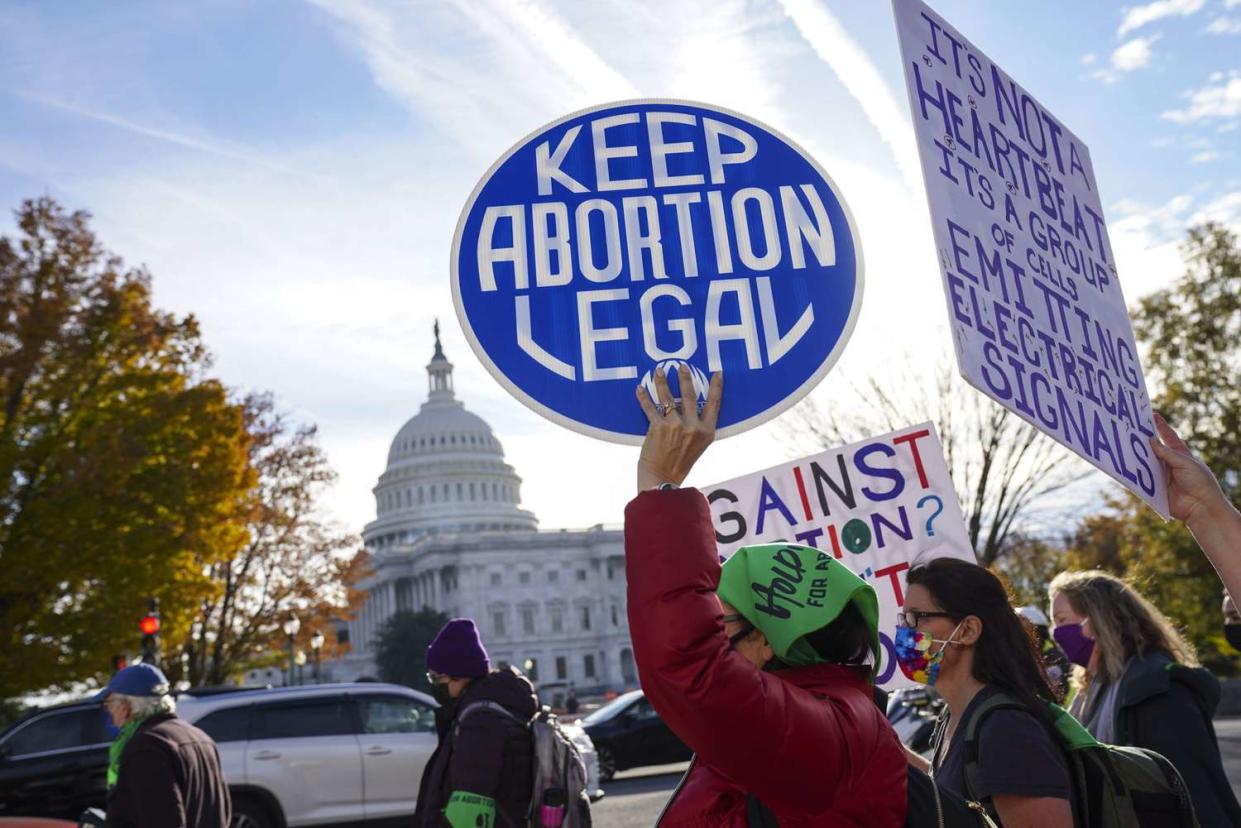Saturday Might Be the Last Anniversary of Roe v. Wade

Saturday will be the 49th anniversary of Roe v. Wade, the landmark Supreme Court decision of 1973 that granted women the right to an abortion in every state. It may be the last anniversary of the law, which is at risk of being overturned later this year.
It comes at a time when abortion rights are under assault across the country. In 2021, a record 106 restrictions on abortions became law in the U.S.
In the past, states that tried to enact anti-abortion laws knew they would be struck down by state and federal courts following the precedent set by Roe v. Wade. But now, with six conservative justices on the Supreme Court — three added during Donald Trump's presidency — legalized abortions may no longer be the law of the land.
RELATED: After Learning She Was 8 Weeks Pregnant, This Texas Woman Had to Travel 1,500 Miles for an Abortion
"We've entered into a new, more restrictive phase in 2021 because we now have a solidly anti-abortion Supreme Court," Elizabeth Nash, state policy analyst at the Guttmacher Institute, a research group focused on abortion rights, previously told PEOPLE. "That really signaled to state legislators that more restrictions and even bans on abortion could potentially go into effect, and we started to see state legislators moving in that direction by adopting early abortion bans.
The process of attempting to overturn Roe v. Wade began when Mississippi's ban on abortions after 15 weeks was struck down by a federal court. The state then asked the Supreme Court to either overturn Roe v. Wade or allow states to pass pre-viability abortion bans. Oral arguments were heard in December and a decision is expected in late spring or early summer.
If Roe is overturned, "then I would expect in fairly short order we would start to see states, particularly the South, the Plains and Midwest, look to adopt abortion bans," Nash says. Twelve states, including Mississippi and Texas, have "trigger" laws in place that would automatically ban abortions if that happens.
"And that would make it very hard for a large percentage of women in the country to access abortion care in their own state. It means a lot more people would have to travel for care," Nash says. "And the people who are most impacted by these abortion restrictions and bans are people of color, low-income individuals, young people and LGBTQ individuals — people who are already burdened with insufficient access to healthcare."
RELATED: FDA Will Permanently Allow Abortion Pills to Be Sent by Mail
However, there are efforts to maintain the right to abortion, even if Roe is overturned. Many states such as New York, Hawaii, California and Washington have statutory protections for abortion rights in their laws. And with the executive and legislative branches of the U.S. government in support of abortion rights, there are plans in the works to stop the Texas ban and create legislation like the Women's Health Protection Act, a bill currently in Congress that would prevent abortion bans and other restrictions.

